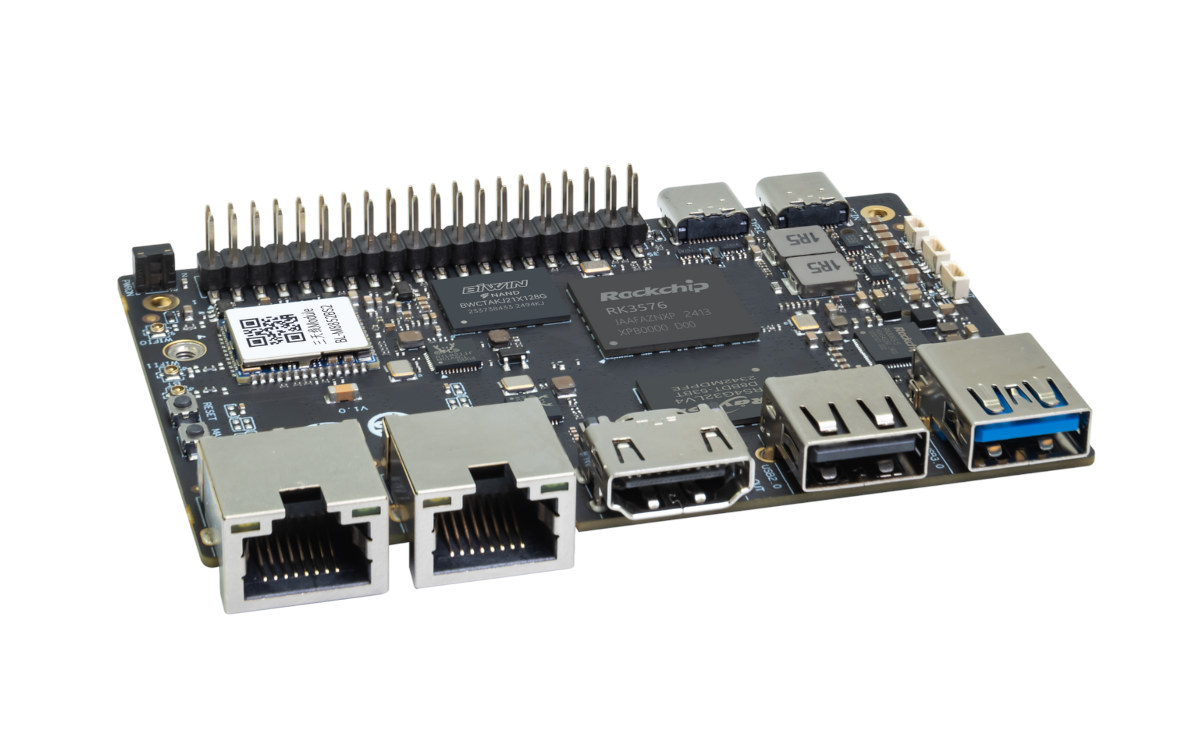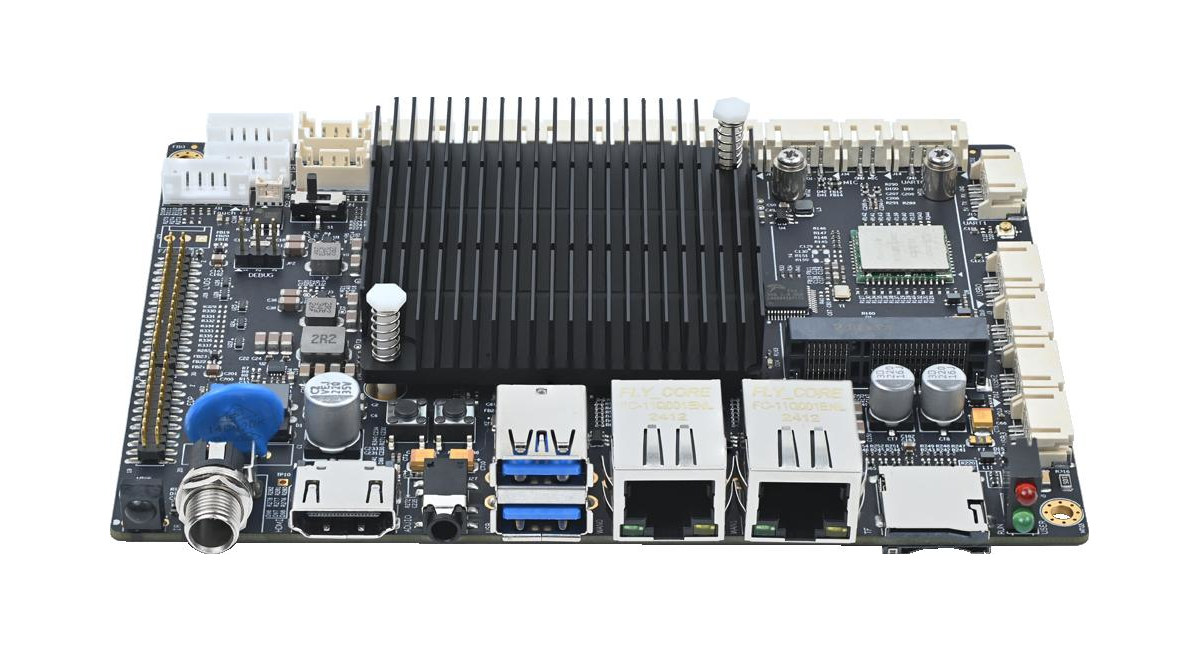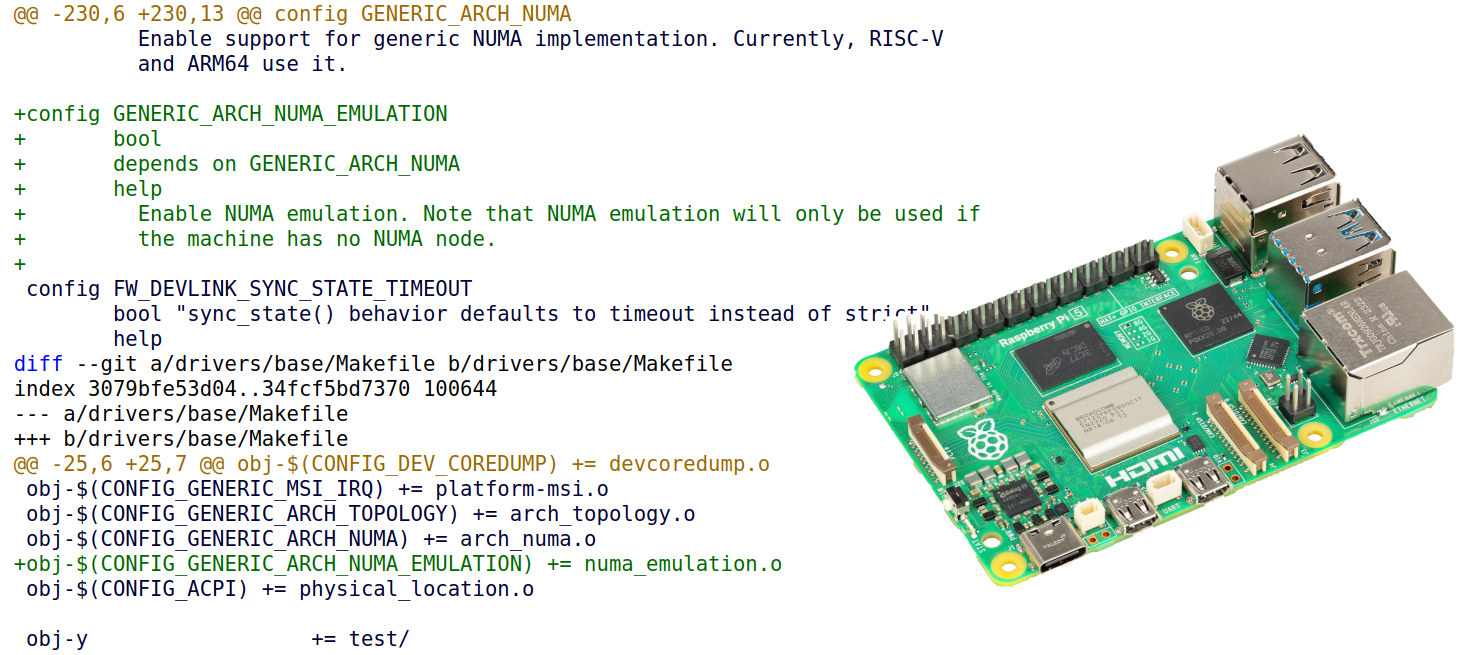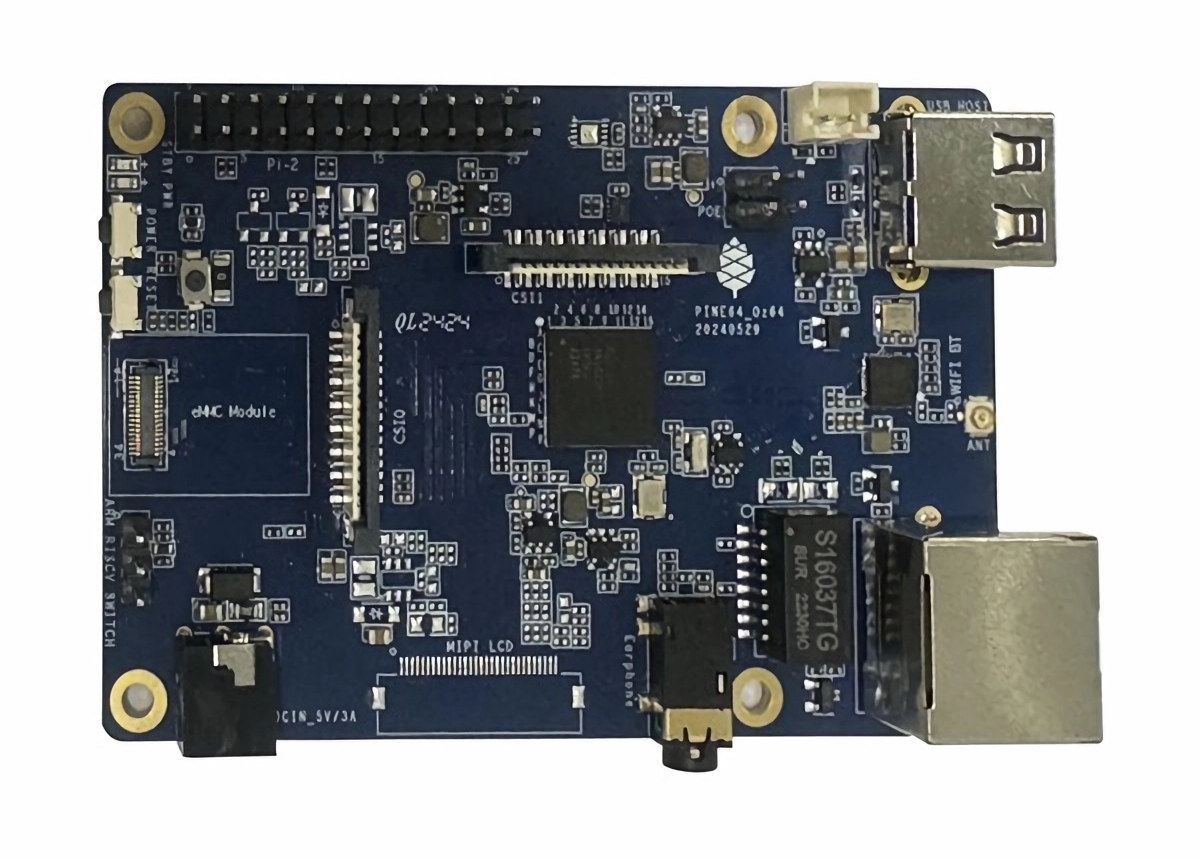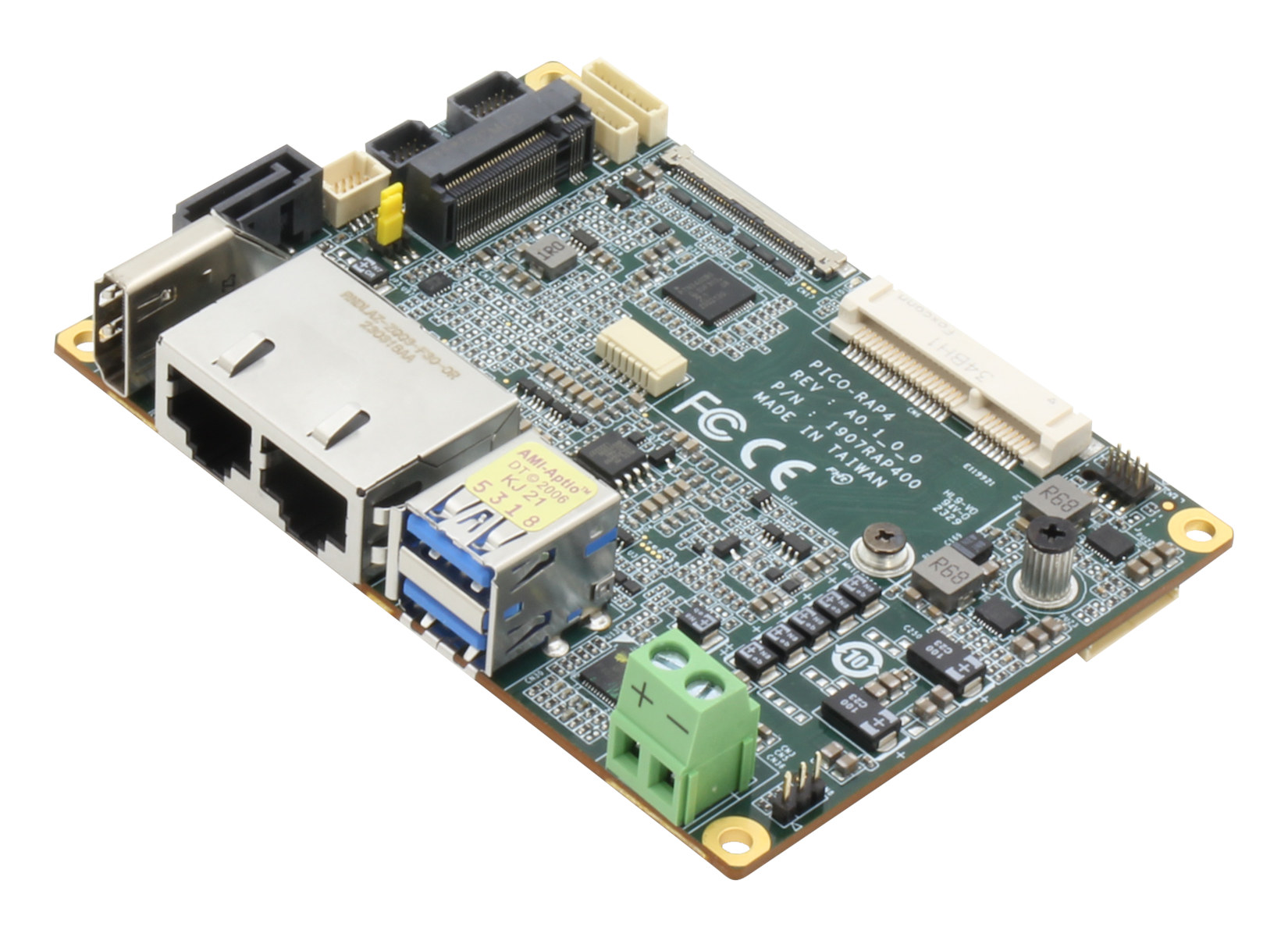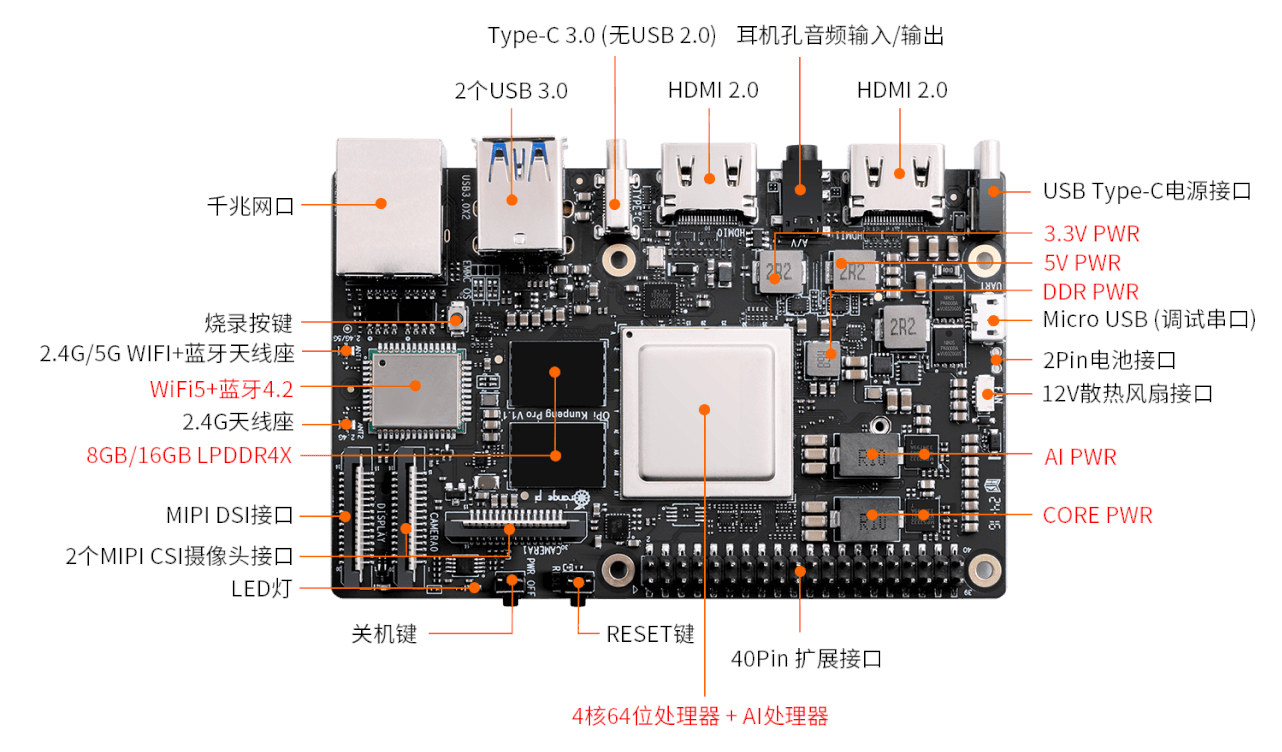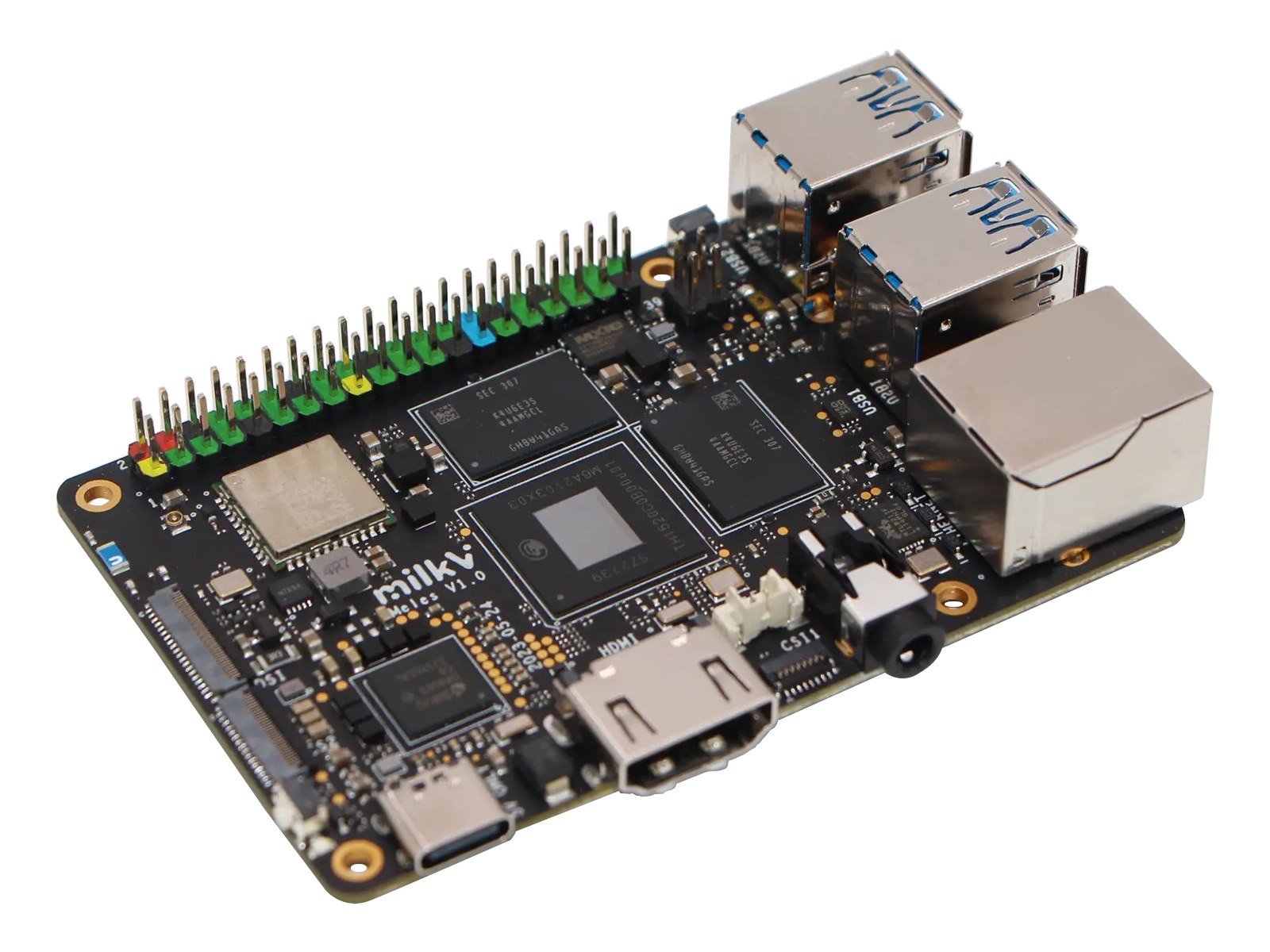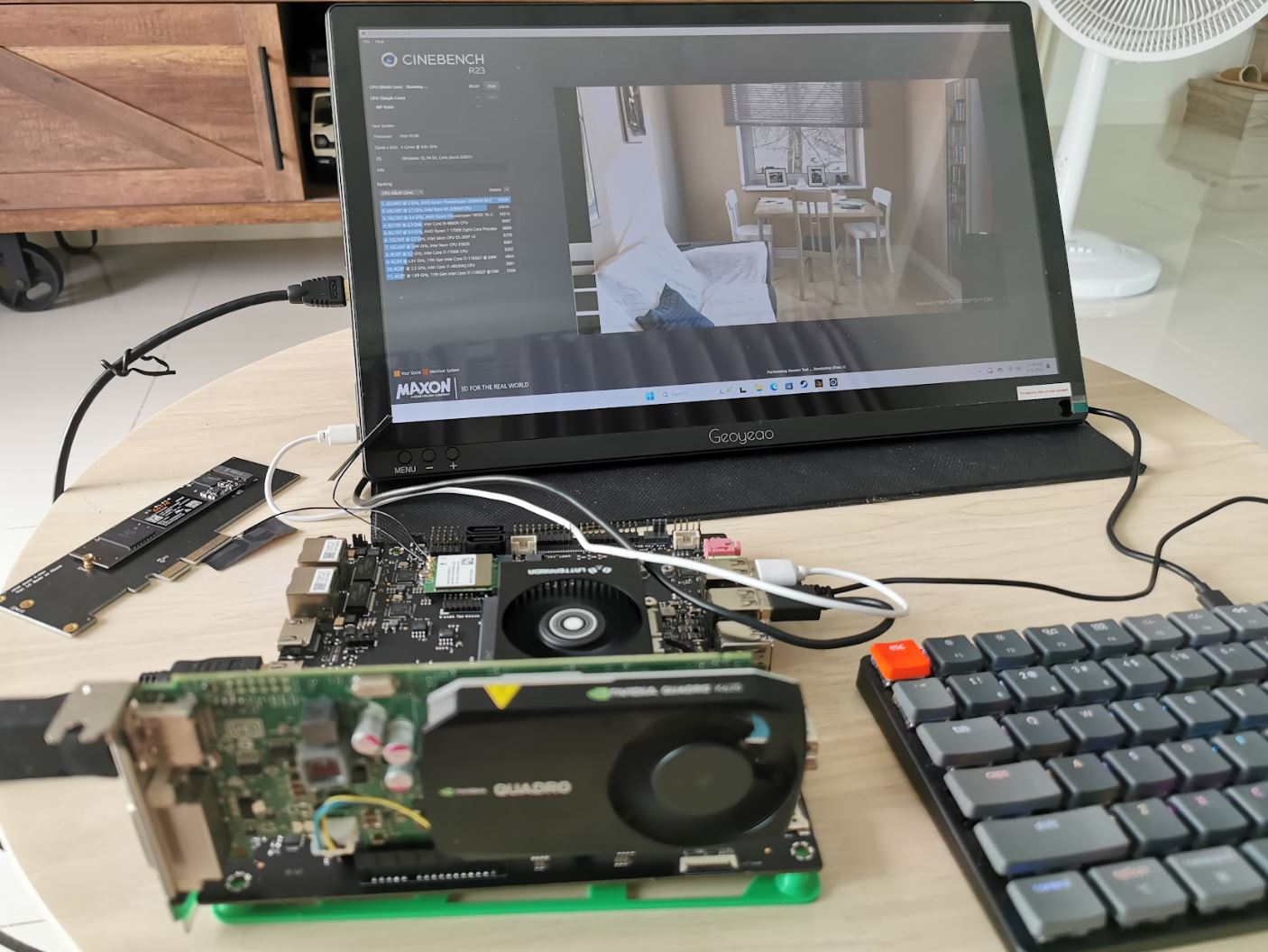Banana Pi BPI-M5 Pro, also known as Armsom Sige5, is a low-profile single board computer (SBC) powered by the Rockchip RK3576 octa-core Cortex-A72/A53 SoC for the AIoT market that offers a mid-range offering between Rockchip RK3588 and RK3399 SoCs. The board comes with 16GB LPDDR4X and 128GB eMMC flash by default, offers dual GbE, WiFi 6 and Bluetooth 5.2 connectivity, an M.2 2280 PCIe socket for expansion, HDMI and MIPI DSI display interfaces, two MIPI CSI camera interfaces, a few USB ports, and a 40-pin GPIO header. Banana Pi BPI-M5 Pro specifications: SoC – Rockchip RK3576 CPU 4x Cortex-A72 cores @ 2.2GHz, four Cortex-A53 cores @ 1.8GHz Arm Cortex-M0 MCU at 400MHz GPU – ARM Mali-G52 MC3 GPU with support for OpenGL ES 1.1, 2.0, and 3.2, OpenCL up to 2.0, and Vulkan 1.1 NPU – 6 TOPS (INT8) AI accelerator with support for INT4/INT8/INT16/BF16/TF32 mixed operations. VPU Video Decoder: […]
Allwinner T527 digital signage and Smart Display board offers HDMI, eDP, MIPI DSI, and LVDS display interfaces
MYiR Tech’s MYD-LT527-SX is a board designed for digital signage and Smart Display applications based on the MYC-LT527 Allwinner T527 system-on-module from the company and offering a range of display interfaces namely HDMI, eDP, MIPI DSI and dual-channel LVDS. The digital signage board builds upon MYiR Tech’s MYD-LT527 development board with a larger design featuring many of the same ports (dual GbE, USB 3.0, audio jack, HDMI output), and plenty of connectors for expansion including additional USB 2.0 interfaces, speaker and microphone, RS232, RS485, CAN Bus, and more. MYiR Tech’s MYD-LT527-SX specifications: SoM – MYC-LT527 system-on-module with SoC – Allwinner T527 CPU Octa-core Arm Cortex-A55 processor with four cores @ 1.80 GHz and four cores @ 1.42GHz E906 RISC-V core up to 200 MHz DSP – 600MHz HIFI4 Audio DSP GPU – Arm Mali-G57 MC1 GPU System Memory – 2GB LPDDR4 Storage – 16GB eMMC flash, 32Kbit EEPROM 381-pad LGA […]
NUMA emulation patch boosts Geekbench 6 benchmark results by up to 18% on Raspberry Pi 5
Igalia Engineer, Tvrtko Ursulin has recently submitted a patch to the Linux kernel adding a NUMA (Non-Uniform Memory Access) emulation implementation for arm64 platforms that boosts the performance of 64-bit Arm targets by “splitting the physical RAM into chunks and utilizing an allocation policy to better utilize parallelism in physical memory chip organization”.
The NUMA emulation implementation was tested on a Raspberry Pi 5 SBC and the Geekbench 6 single-core score improved by 6%, while the multi-core score boosted by 18% after splitting into four emulated NUMA nodes. In other words, that’s like having a Broadcom BCM2712 CPU overclocked from 2.4 GHz up to 2.83 GHz.
Pine64 Oz64 RISC-V+Arm SBC to support NuttX RTOS and Debian Linux
Pine64 Oz64 is an upcoming credit card-sized SBC based on the SOPHGO SG2000 RISC-V+Arm(+8051) processor that currently runs NuTTX RTOS, and a Debian Linux image is also in the works. With a name likely inspired by the earlier Pine64 Ox RISC-V SBC, the Oz64 is a more powerful embedded board with 512 MB of DRAM integrated into the SG2000, a microSD card, an eMMC flash module connector, Ethernet port, WiFi 6 and Bluetooth 5.2, a USB 2.0 Type-A host port, and a 26-pin GPIO header. Pine64 Oz64 specifications: SoC – SOPHGO SG2000 Main core – 1 GHz 64-bit RISC-V C906 or Arm Cortex-A53 core (selectable) Minor core – 700 MHz 64-bit RISC-V C906 core Low-power core – 25 to 300 MHz 8051 MCU core with 8KB SRAM NPU – 0.5 TOPS INT8, supports BF16 Integrated 512MB DDR3 (SiP) Storage MicroSD card slot eMMC flash module connector Display – Optional 2-lane […]
2.5-inch Pico-ITX SBC features 13th gen Raptor Lake SoC up to Intel Core i7-1370PE
AAEON PICO-RAP4 is a 2.5-inch Pico-ITX SBC powered by Intel Raptor Lake processors from the penta-core Intel Processor 300U up to a 14-core Intel Core i7-1370PE, equipped with up to 32GB DDR5 SO-DIMM memory, and supporting M.2 NVMe, SATA, and mSATA storage devices. The Pico-ITX board also features two Ethernet ports (2.5GbE + GbE) with TCC and TSN support, HDMI and eDP/LVDS display interfaces, multiple USB ports, two RS232/RS422/RS485 interfaces, and I2C and GPIO interfaces for further expansion. AAEON PICO-RAP4 specifications: SoC – 13th gen Raptor Lake SoC (one or the other) – Note frequencies shown as base frequencies Intel Core i7-1370PE 14C/20T processor @ 1.9GHz with Intel UHD Graphics; PBP: 28W Intel Core i7-1370PRE 14C/20T processor @ 1.9GHz with Intel UHD Graphics; PBP: 28W Intel Core i5-1340PE 14C/16T processor @ 1.8GHz with Intel UHD Graphics; PBP: 28W Intel Core i3-1320PE 8C/12T processor @ 1.7GHz with Intel UHD Graphics; PBP: […]
Orange Pi KunPeng Pro SBC features a quad-core Huawei CPU with an 8 TOPS AI accelerator
Orange Pi KunPeng Pro is a single board computer powered by an unnamed KunPeng quad-core processor from Huawei that features an 8 TOPS NPU for AI workloads. It’s not the first time Orange Pi has launched an SBC based on a Huawei SoC, as the company introduced the Orange Pi AIPro last year with another unnamed Huawei Ascend SoC with a 20 TOPS NPU. The new Orange Pi KunPeng Pro board has basically the same layout as the AIPro model, but with lower specs overall, although it still comes with 8GB or 16GB LPDDR4x memory. Orange Pi KunPeng Pro specifications: SoC – Unnamed Huawei Kunpeng quad-core 64-bit SoC with unnamed GPU, 8 TOPS AI accelerator System Memory – 8GB or 16GB LPDDR4X Storage 32MB SPI flash connector for 32GB, 64GB, 128GB, or 256GB eMMC flash module MicroSD card slot M.2 2280 socket for SATA/NVMe drive Video Output 2x HDMI 2.0 […]
Meles RISC-V credit card-sized SBC is powered by T-Head TH1520 quad-core SoC
Shenzhen Milk-V Technology’s Meles SBC (single board computer) is powered by a T-Head TH1520 quad-core RISC-V processor and offered in a credit card form factor similar to the Raspberry Pi 3 Model B layout. The board is quite more powerful with a 2.0 GHz quad-core SoC equipped with a modern GPU, a 4K capable video encoder and decoder, and a 4 TOPS NPU. The board also features gigabit Ethernet, a WiFi 5 and Bluetooth 5.2 module, four USB 3.0 ports, HDMI 2.0 video output, MIPI CSI and DSI interfaces, and a 40-pin GPIO header. Meles specifications: SoC – Alibaba T-Head TH1520 CPU Quad-core RISC-V Xuantie C910 (RV64GCV – Vector Extension version 0.7) processor up to 2.0 GHz Low-power Xuantie E902 core GPU – Imagination BXM-4-64 GPU with support for OpenGL ES3.0/3.1/3.2, OpenCL 1.1/1.2/2.0, Vulkan 1.1/1.2; 50.7GFLOPS DSP – Xuantie C906 audio DSP @ 800 MHz VPU Video Decoder H.265, H.264, […]
LattePanda Mu review – Part 1: an Intel N100 Compute Module tested with Windows 11, carrier boards with PCIe slots
Last April, DFRobot launched the LattePanda Mu x86 Compute Module powered by an Intel N100 Alder-Lake processor with 8GB RAM and a 64GB eMMC flash along with Lite and Full function carrier boards for evaluation. End customers will typically design their own carrier board without having to take of high-speed signals for the LPDDR5 memory and other complexities during the PCB layout. DFRobot has sent us the LattePanda Mu module for review along with the Lite and Full Function carrier boards, a heatsink for passive cooling, and an active cooler so we can compare both cooling solutions. Let’s have a look at the LattePanda Mu module and accessories before testing the kit with the Windows 11 operating system, including the PCIe x4 slot. LattePanda Mu kit unboxing The parcel included three retail boxes. The smallest box housed the LattePanda Mu Compute Module, a heatsink, and an active cooler. The second […]


